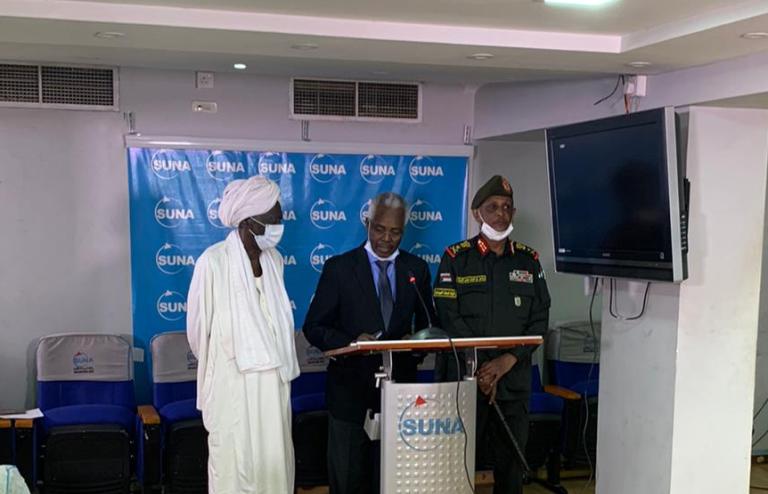Sudan’s ruling partners agree to appoint civilian governors, parliament next May
April 12, 2020 (KHARTOUM) – Sudan’s ruling partners agreed on Saturday to appoint civilian governors and the legislative parliament before mid-May.
The agreement was announced in a short statement read on the first anniversary of the ouster of the former president Omer al-Bashir and his Islamist regime.
Also, the statement was read by the cabinet affairs minister Omer Monis in the presence of Siddiq Youssef as representative of the Forces for Freedom and Change (FFC) and Yasir al-Atta representing the military component.
In their joint statement, the three parties said they held a meeting to discuss the crises and threats the country is facing.
“The meeting endorsed a (matrix) binding to the three parties that detailed responsibilities and set times for carrying out urgent tasks in seven tracks: partnership, peace, economic crisis, dismantling (the former regime), and reforming the military and security services, justice, and external relations”.
“Also, it agreed on important decisions to complete the structures of the Transitional Authority and the formation of an economic emergency committee (…),” stressed the statement.
In separate statements to Sudan Tribune, Youssef said that the three parties “agreed to complete the power structures before the second week of May”.
Nonetheless, the agreed matrix seen by Sudan Tribune says the governors should be appointed in the second half of April and the parliament in May
The political leader did not develop about the linking between the appointment of civilian governors and the peace process.
The armed groups request to delay the parliament and the appointment of government until the signing of a peace agreement.
The Sovereign Council and Prime Minister Hamdok backed this demand during the past months. However, with this development, it seems they conceded to the FFC’s demand.
For the civilian governors, some of them – particularly in the war-affected states – will be replaced by others nominated by the armed groups after the signing of a peace agreement.
Youssef further emphasized that the new Economic Emergency Committee has more powers than the economic mechanism and its chairmanship has been entrusted to Prime Minister Abdallah Hamdok.
For the talks with the SPLM-N led Abdel Aziz al-Hilu the parties agreed to “develop the negotiating position” of the government, according to the matrix agreed by the three parties but no details transpired about this development.
(ST)

